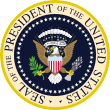President's Committee on Civil Rights facts for kids
 |
|
| History | |
|---|---|
| Established by | Harry Truman on December 5, 1946 |
| Disbanded | December 1947 |
| Related Executive Order number(s) | 9808, 9980, 9981 |
| Membership | |
| Chairperson | Charles Edward Wilson |
| Other committee members | Sadie T. Alexander James B. Carey John Sloan Dickey Morris Ernst Roland B. Gittelsohn Frank Porter Graham Francis J. Haas Charles Luckman Francis P. Matthews Franklin Delano Roosevelt Jr. Henry Knox Sherrill Boris Shishkin Dorothy Rogers Tilly Channing Heggie Tobias |
| Jurisdiction | |
| Purpose | Investigate the status of civil rights in the country and propose measures to strengthen and protect them |
| Policy areas | Civil rights |
| Summary | |
|
|
The President's Committee on Civil Rights was a special group created by President Harry Truman in 1946. This committee was formed to look into the state of civil rights in the United States. Its main goal was to suggest ways to make these rights stronger and protect them better for everyone.
The committee included important people from business, labor unions, religious groups, and universities. They worked together to study how civil rights were being upheld across the country.
Contents
Understanding the Committee's Purpose
The President's Committee on Civil Rights was asked to do three main things:
- Examine the condition of civil rights in the United States.
- Write a detailed report about what they found.
- Suggest ways to improve civil rights for all Americans.
In December 1947, the committee finished its 178-page report. It was called To Secure These Rights: The Report of the President’s Committee on Civil Rights.
Key Recommendations for Civil Rights
The report made several important suggestions to improve civil rights:
- Create a permanent Civil Rights Commission.
- Form a special committee in Congress for civil rights.
- Set up a Civil Rights Division within the Department of Justice.
- Develop federal laws to protect people from lynching, which was a form of violence against minority groups.
- Establish a permanent commission to ensure fair employment practices.
- End poll taxes, which were fees people had to pay to vote, often used to stop African Americans from voting.
The report also suggested that the UN Charter from 1945 could be used to fight racial discrimination in the U.S.
President Truman's Actions
President Truman took action based on the committee's report. On July 26, 1948, he signed two important orders:
- Executive Order 9980: This order ended segregation in the federal government's workplaces. Segregation meant keeping people of different races separate.
- Executive Order 9981: This order ended segregation in the armed services. This meant people of all races could serve together.
President Truman also asked Congress to pass laws based on the committee's recommendations in February 1948.
Impact on Diplomacy
The committee's report also helped open doors for African-American diplomats. For example, Edward R. Dudley became the first African American to serve as an ambassador under President Truman. This was partly because the committee's findings showed how racial issues in the U.S. were harming its relationships with other countries. Even with these findings, President Truman faced challenges in making changes due to strong opposition within the country.
Committee Members
The committee had 15 members who worked on the report:
- Charles Edward Wilson (Chairman)
- Sadie T. Alexander
- James B. Carey
- John Sloan Dickey
- Morris Ernst
- Roland B. Gittelsohn
- Frank Porter Graham
- Francis J. Haas
- Charles Luckman
- Francis P. Matthews
- Franklin Delano Roosevelt Jr.
- Henry Knox Sherrill
- Boris Shishkin
- Dorothy Rogers Tilly
- Channing Heggie Tobias
Publications
- President's Committee on Civil Rights. To Secure These Rights: The Report of the President's Committee on Civil Rights. Washington: GPO, 1947.
See Also
- Executive Order 8802, signed by President Franklin D. Roosevelt in 1941, which aimed to stop discrimination in the defense industry.
- National Emergency Committee Against Mob Violence
 | Isaac Myers |
 | D. Hamilton Jackson |
 | A. Philip Randolph |

